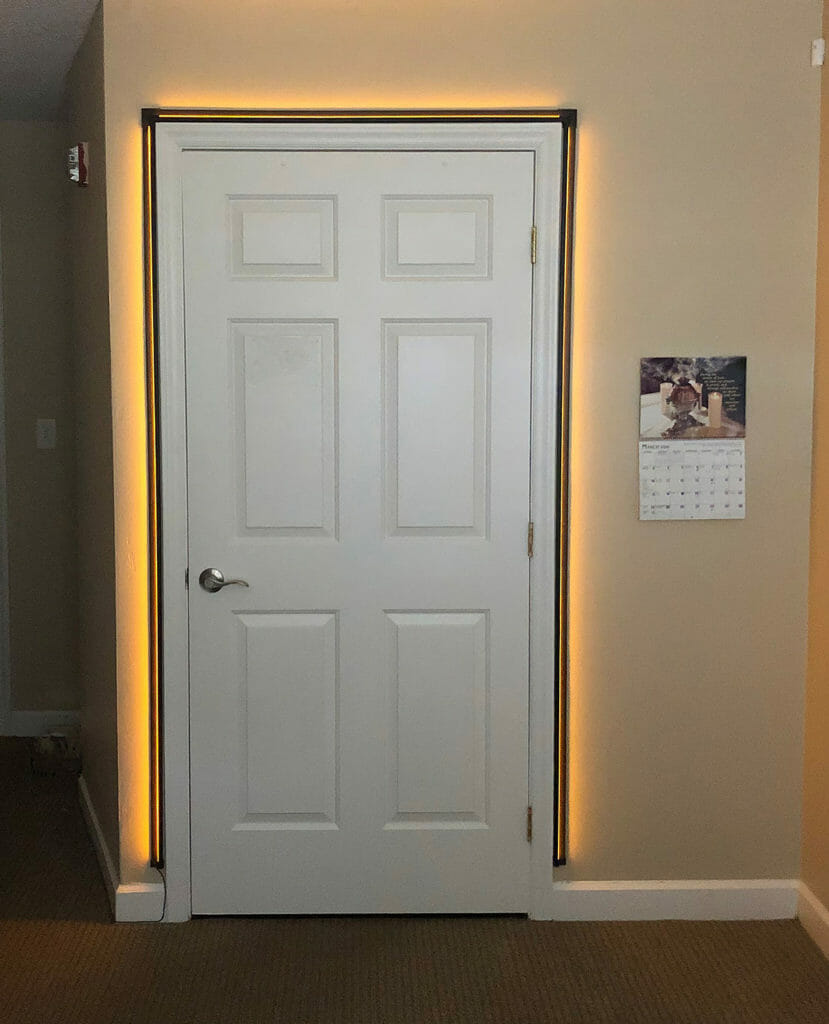
New studies by Affinity Living Group and the University of North Carolina Chapel Hill aim to use light to reduce the number of falls or amount of agitation in residents living with dementia.
The pilot projects, ALG Chief Medical Officer Kevin O’Neil, M.D., said, are producing “valuable results.”
In one study, at Chatham Commons, in Cary, NC, and The Stratford, in High Point, NC, lights that are the intensity of standard nightlights have been installed along the bathroom door frames in resident rooms. The lights function on a timer from 7 p.m. to 7 a.m., and a camera and sensor also have been installed to record falls and near falls that occur overnight.
“A significant number of falls happen in the evening hours and overnight,” said Sheryl Zimmerman, MSW, Ph.D., co-director of the Program on Aging, Disability and Long-Term Care at UNC. Falls, she added, are the main cause of fatal and nonfatal injuries in those aged 65 or more years.
The study will be conducted at the two communities for a year. Early data suggest that the vertical and horizontal orientation of the lights helps postural stability, which helps maintain balance and thereby reduces falls, ALG said.
In another study, at Rose Glen Manor in Wilkesboro, NC, special lights have been installed by Palmetto Green to mimic the natural rise and fall of sunlight. Researchers are testing whether the lights result in a more calming start and end of the day for residents living with dementia. Data look promising, according to ALG.
“We’re finding residents are sleeping better, their moods are better, they have more participation, and we are seeing reduction[s] in depression rates and fall rates,” said Lindsey Starnes, the company’s vice president of provider engagement and innovations.
ALG plans to make it easier for the energy-efficient LED lights, installed by Lumenant, to be incorporated into new and renovated communities so they can offer light therapy.



